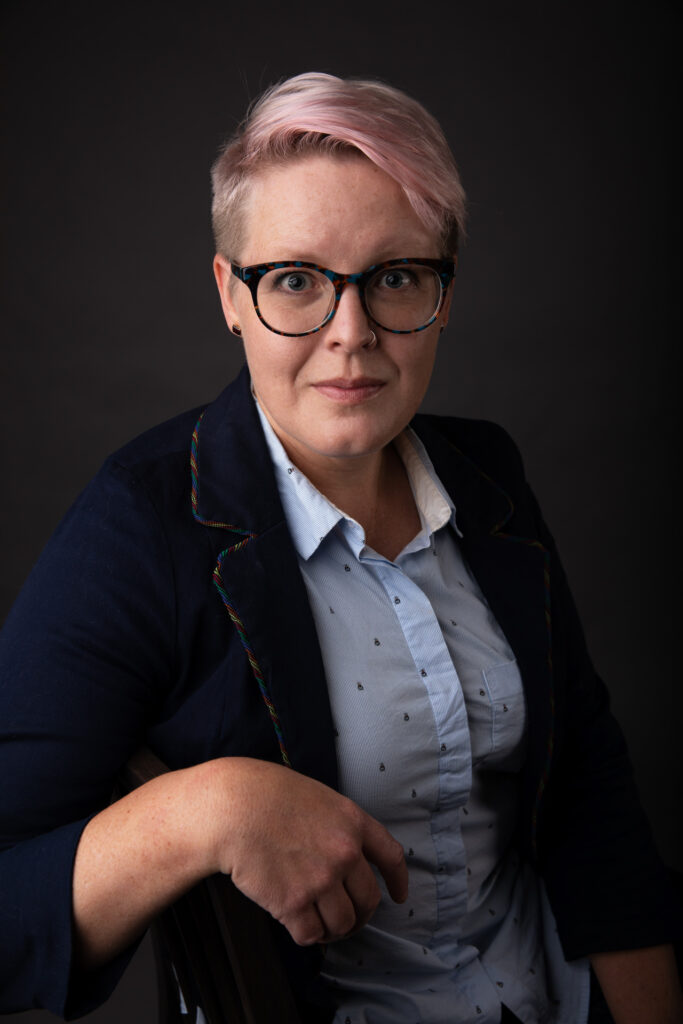About MARCH
MARCH is a regional public humanities research and resource center in Camden, and is home to a Humanities makerspace, the Encyclopedia of Greater Philadelphia and public history projects illuminating the many lives and stories of our own neighborhood in Camden’s historic Cooper Street. MARCH has been thinking deeply and carefully about place for over twenty years, and asks us to consider “where do you find yourself?”
In fall 2023 MARCH initiated a new focus on the Environmental Humanities, exploring creative and critical approaches to thinking about our place, relationships, and responsibilities to the natural world and nonhuman community. MARCH will be creating new programs to support campus and community scholarship, creative work, and activism related to the environment.
Where to find MARCH
You can find MARCH at 325 Cooper Street in Camden, one of the historic row homes featured in our Cooper Street Project.
325 Cooper Street is a contributing structure of the Cooper Street Historic District, which is listed on the New Jersey and National Register of Historic Places. The west end of a row of three houses built in the early 1850s, it supports the district’s significance as a collection of residences representing the nineteenth-century history of Camden. Its past residents include Camden’s second female physician, Lettie Ward.
MARCH TEAM
Dr. Jillian Sayre, Director
Jillian Sayre (PhD, University of Texas) is Associate Professor in the Department of English and Communication where she teaches courses on contemporary theory, ecocriticism and environmental writing, Native American literature, American literary history, and gothic and horror writing. Dr. Sayre’s research centers what she calls affective genres, stories that move their readers or audiences to feeling or action. From the bodily engagements of mourning and horror to the care cultivated for companion animals to the overwhelming experience of grandeur in the natural world, Dr. Sayre studies the ways that these narratives move their audiences in significant – and signifying – ways.
Her book Mourning the Nation to Come (LSU Press, 2019) is a study of early national literature and culture in North and South America that looks at how European-Americans grounded patriotic feelings in laments for an Indigenous past. Representing Indigenous communities as already extinct, lost, or vanished, Dr. Sayre traces how the national romance in the United States, Spanish America, and Brazil made space for emerging nations by writing over the continuing presence of Native people. She has also published essays on translation and translation theory, early national religious writings, weariness and exhaustion as environmental feelings, and companion animals in early American frontier stories. You can find more information about her research here.
Dr. Sayre describes herself as a book nerd who is interested in what stories do: how they move us to feeling, how they change the way we understand the world around us, and even how they encourage us to create new and better worlds for ourselves and our communities.

Isabel Steven, Program Coordinator
Isabel Steven (she/her) comes to MARCH with nearly ten years of experience as a museum professional in history, art and literary institutions. she was most recently at the Rosenbach Museum and Library where she developed public programs and managed the historic house tour and docent guide force. She earned her MA in Public History at Temple University, where her scholarship theorized queer possibilities of economically independent coupled women in 18th-century Philadelphia. This scholarship was featured in the debut season of the Elfreth’s Alley Museum podcast The Alley Cast, a project that she co-produced in summer 2020. Her thesis focused on the application and transformation of this type of scholarship for a public audience, the historic house museum as a site uniquely situated to interpret queer history, and the use of intuition and possibility as methodology. Isabel manages the Continuing Education in Historic Preservation Program and is the managing editor for the Encyclopedia of Greater Philadelphia.

Elizabeth Eimer, Digital Publishing and Research Assistant for the Encyclopedia of Greater Philadelphia
Elizabeth Eimer is a graduate student at Rutgers University – Camden studying legal history. Her research is focused on American judicial history and precedent with research done on topics such as same-sex marriage rights, abortion rights, and the articulation of race in citizenship. Elizabeth is also focused on local public history research in Philadelphia and South Jersey. Her projects include work for Learning from Cooper Street, historical interpretation of the Camden Waterfront, and exhibit curation and design at the Robeson Library. She has interned as a research assistant in uncovering structural racism and health inequities in New Jersey for Truth and Repair Project.
Elizabeth has worked for the past several years as a Digital Publishing and Research Assistant for the Encyclopedia of Greater Philadelphia, fact-checking essays submitted to the Encyclopedia and supplementing them with independently researched illustrations and captions. As an editorial assistant, Elizabeth crafted the biographical index for the book Greater Philadelphia and the Nation, published 2025. She also contributed fact-checking and copy-editing for both Greater Philadelphia and the Nation and Greater Philadelphia and the World.